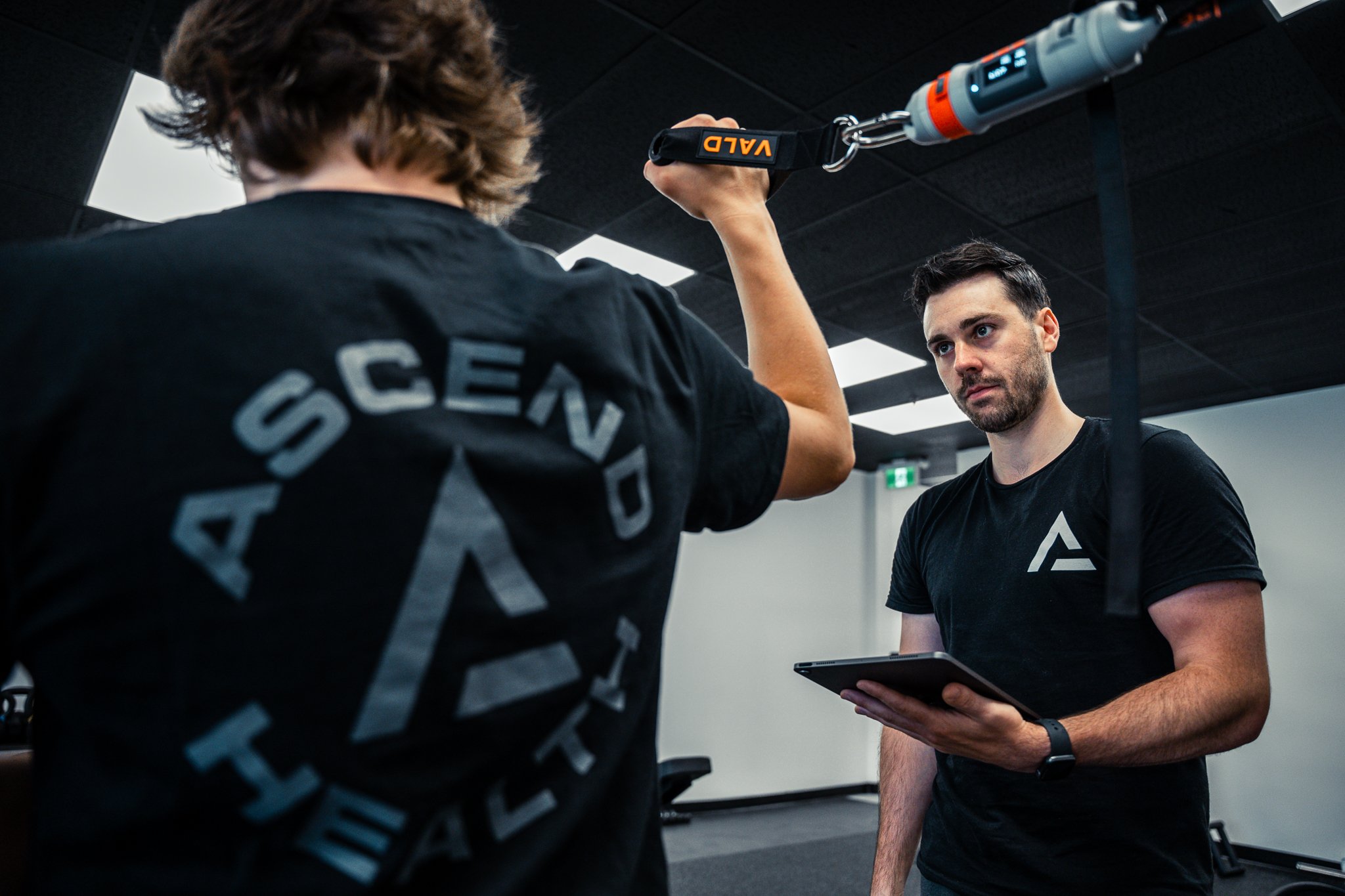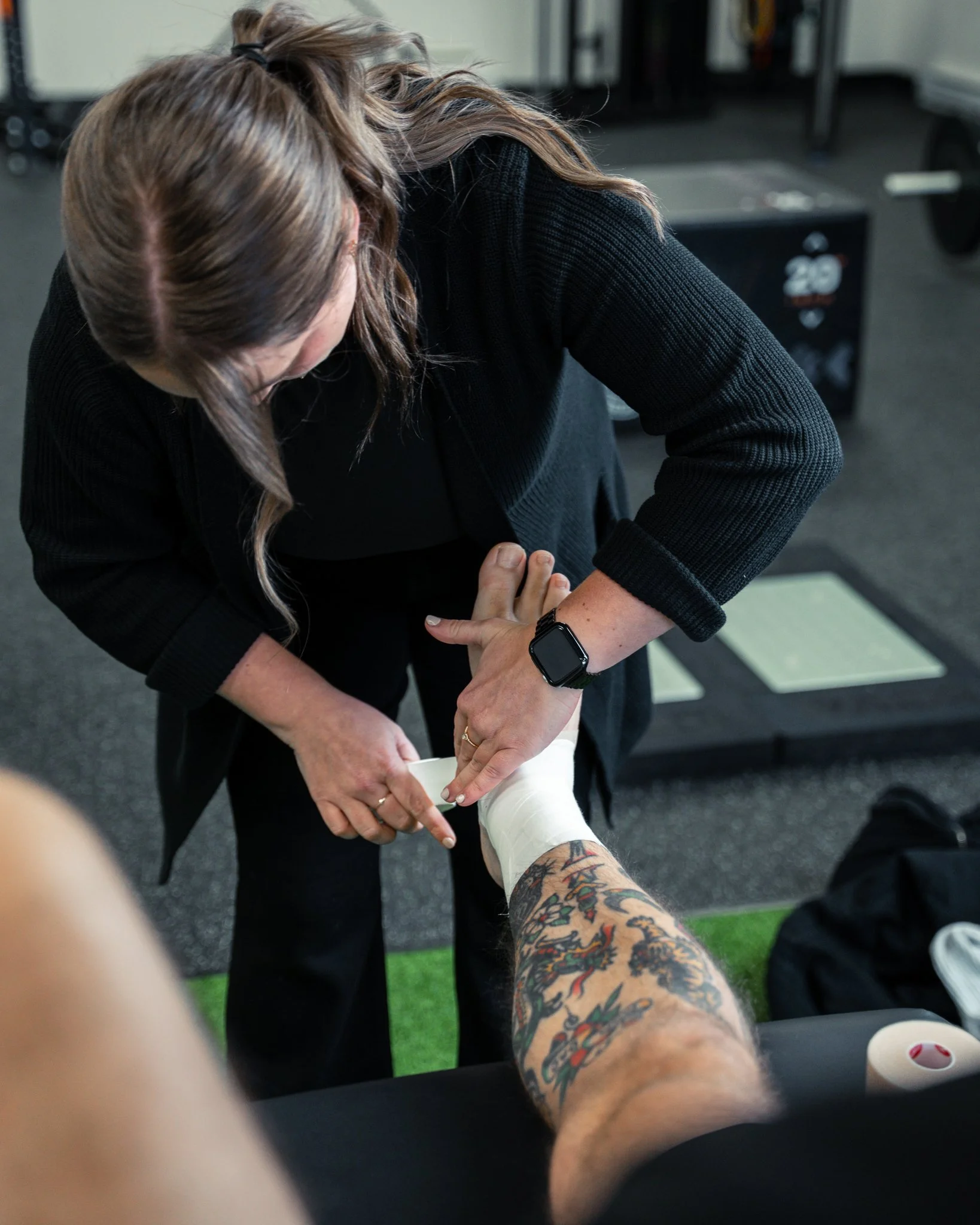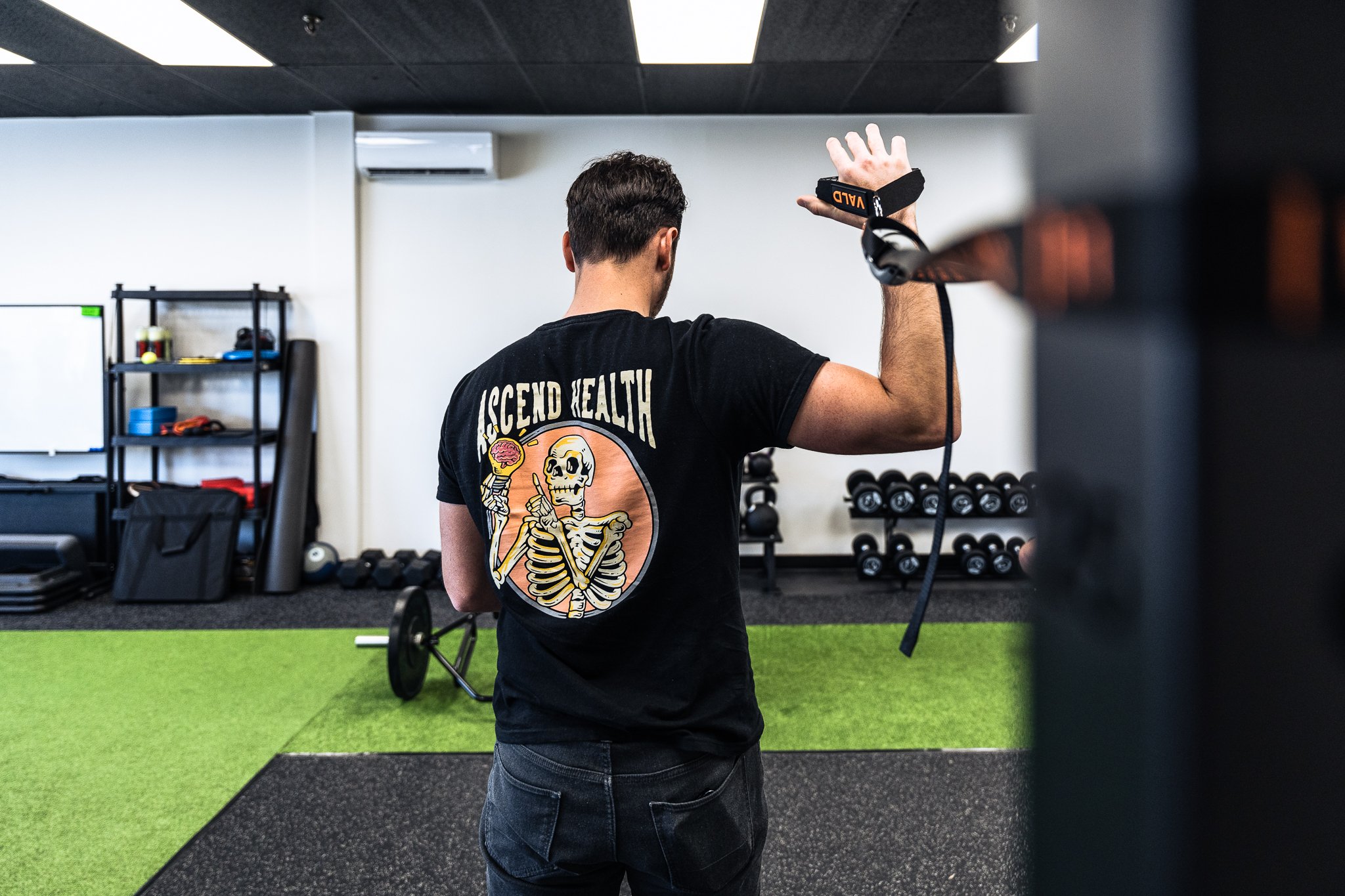
Physiotherapy
We believe in high-quality, research-supported treatment methods. Our physiotherapists use one-on-one treatment sessions to support you through every step of your rehabilitation journey.
Treatment Approach
-
INDIVIDUALIZED
—
Your physiotherapy program will be individualized to you, your injury, and your treatment goals. -
EXERCISE-FOCUSED
—
By combining strength and mobility exercises with adjunct, hands-on techniques we help minimize pain and optimize function. -
HIGH-QUALITY
—
Our physiotherapists are able to assess, diagnose, and treat a variety of injuries and movement dysfunctions.

Move With Purpose
Common Conditions Treated
-
This occurs when the tendons of the rotator cuff muscles become irritated or compressed as they pass through the shoulder joint during arm elevation. This condition leads to pain and restricted movement in the shoulder.
-
This refers to discomfort originating from the sacroiliac joint, which is located where the sacrum (the triangular bone at the base of the spine) meets the ilium (the upper part of the hip bone). The SIJ transfers forces throughout the body.
-
Involves damage to one of the key ligaments in the knee that helps stabilize the joint. The ACL is crucial for controlling movements like twisting, turning, and sudden stops. ACL injuries are common in sports that involve high-impact or rapid directional changes.
-
Occur when muscle fibers are stretched or torn due to excessive force or overuse. They are common injuries that can affect any muscle in the body, and they range from mild (grade one) to severe (grade three).
-
Occurs when bone density decreases and the bone structure becomes porous and brittle. The condition characterized by weakened bones that are more susceptible to fractures.
-
Refers to a state of physical decline due to prolonged inactivity or lack of exercise due to injury or hospitalization. This condition leads to decreased strength, endurance and cardiovascular health.
-
Any physical injury sustained by an employee while performing workplace-related tasks or duties. These injuries may result from accidents, repetitive stress, or exposure to hazardous conditions.
-
Includes a range of symptoms that occur following a whiplash injury. This injury results from a sudden, forceful movement of the head, often caused by rear-end car collisions, but can also occur from other trauma, such as sports injuries.
-
Any physical harm sustained as a result of an accident involving a motor vehicle. These injuries can affect different parts of the body.
-
Any physical injury sustained during athletic activities or sport. These injuries can range from minor to severe and may affect muscles, bones, joints, and connective tissue.
-
(Specific and Non-Specific)
Specific Low-Back Pain is pain resulting from disease or structural problem in the spine, or when the pain radiates from another part of the body.
Non-specific Low-Back Pain is when there is no specific disease or structural problem to explain the pain.
-
A condition characterized by pain that radiates along the path of the sciatic nerve, which runs from the lower back through the buttocks and thigh into the lower leg. Typically, sciatica affects only one side of the body.
-
Also known as a Cervicogenic headache, is a type of headache that originates from issues in the cervical spine (the neck).
-
TMJ dysfunction, or temporomandibular joint dysfunction, refers to a variety of conditions affecting the jaw joint (temporomandibular joint) and the muscles that control jaw movement. This condition can cause pain and discomfort in the jaw, face, and surrounding areas.
-
Involve injury to one or more of the four muscles and tendons that surround the shoulder joint. These muscles provide stability and enable a wide range of motion. These injuries can result from acute trauma, overuse, or degeneration due to aging.
-
Post-operative care is essential for a successful recovery and to restore optimal function and mobility. Common orthopaedic surgeries include: joint replacements, tendon and ligament repairs, fracture repairs, arthroscopic procedures and spinal surgeries.
-
Common condition that can affect the muscles, nerves, and vertebrae in the neck, leading to discomfort and reduced mobility.
-
OA is a degenerative joint condition that occurs when the cartilage that surrounds the ends of bones wears down over time. It is the most common form of arthritis, affecting millions of people worldwide, and can cause pain, stiffness, and loss of joint function.
-
Commonly known as tennis elbow or golfer's elbow, is an injury to the tendons that attach to the epicondyles of the elbow. Often resulting from overuse or repetitive stress and can cause pain and tenderness on the outer (lateral epicondylitis) or inner (medial epicondylitis) part of the elbow.
-
A common condition that causes pain in the heel and bottom of the foot. It occurs when the plantar fascia; a thick band of tissue that runs across the bottom of the foot becomes inflamed or irritated.

What To Expect
-
FIRST VISIT
—
Your physiotherapist will discuss the history of your injury and symptoms. Then they will examine physical characteristics such as your joint range of motion, strength, posture, gait, functional movement, and perform clinical tests. -
CREATING A TREATMENT PLAN
—
Once assessed, your physiotherapist will communicate the findings and work with you to create a custom treatment plan. This plan will help guide you towards your rehabilitation goals. -
TREATMENTS
—
Treatments will consists of a combination of hands-on treatment (to decrease pain), education (about managing your condition), and mobility and resistance exercise programming. -
WE DO THINGS DIFFERENT
—
You will not be left alone in a room or behind a curtain with passive treatments such as heating pads or TENS machines. Our physiotherapists are directly involved at every step of your rehabilitation journey.
